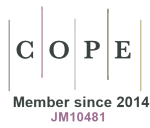Development of a digital learning program for physiotherapists to enhance clinical implementation of aerobic exercise in stroke rehabilitation
DOI:
https://doi.org/10.1186/s40945-021-00110-5Keywords:
Stroke rehabilitation, Aerobic exercise, eLearning, Evidence-based practice, Knowledge translationAbstract
Background: This paper describes the initial development process of an eLearning continuing professional education program primarily for post-licensure physiotherapists –“Electronic Aerobic Exercise Recommendations to Optimize Best Practices in Care after Stroke” (eAEROBICS). Our objective was to develop an evidence-based, clinically relevant, userfriendly eLearning program for online delivery tailored to facilitate prescription of aerobic exercise post-stroke by physiotherapists. The Demand Driven Learning Model guided curriculum design, delivery, and evaluation. Based on previously identified gaps in physiotherapists’ knowledge of aerobic exercise, four learning modules were developed and delivered using an eLearning platform to maximize cost-effectiveness and flexibility. Five physiotherapists volunteered to pilot eAEROBICS, providing preliminary feedback on strengths and suggestions for improvement. Results: Theoretical information and clinical applications addressed the learning objectives of each module in a logical manner. All technical or administrative issues encountered during program delivery were addressed. The feedback from the pilot end-users informed modifications to the eAEROBICS program. Conclusions: Processes used in developing eAEROBICS have the potential to serve as a model of electronic continuing professional education for other areas of physiotherapy practice. Further investigation of end-user perspectives and clinical impact of the program is warranted to determine the overall effectiveness of the program.Downloads
Download data is not yet available.
Downloads
Published
2021-06-17
How to Cite
Thornton, M., Harris, J., Breithaupt, K., Dyks, T., Finestone, H., & MacKay-Lyons, M. (2021). Development of a digital learning program for physiotherapists to enhance clinical implementation of aerobic exercise in stroke rehabilitation. Archives of Physiotherapy, 11(1). https://doi.org/10.1186/s40945-021-00110-5
Issue
Section
Methodology Article
License
Copyright (c) 2021 The Authors

This work is licensed under a Creative Commons Attribution-NonCommercial 4.0 International License.









